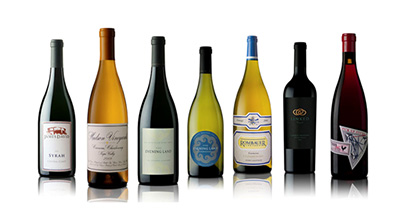By: Amanda V. Cardona
Restaurants, bakeries, coffee shops, and other food vendors are investing money, time, and effort to design novelty food products that attract social media followers. The “influencer” culture of late has taught the world that a viral social media campaign on even a single signature product has the potential to draw in thousands of a new kind of customer: those willing to travel and wait in long lines for the perfect social media post.
Across the world, companies are producing highly creative novelty food items with appearance being the primary marketable feature. Does ice cream in a fish-shaped cone taste better than ice cream in a regular cone? Does a rainbow-colored bagel fulfill your hunger more than a traditional, bread-colored bagel? Does a cupcake with a particular swirl offer a better value than one without? Do taste, satiety, and value even matter in the age of Instagram?
Competitors to Taiyaki NYC, The Bagel Shop, and Magnolia Bakery, respectively, are curious to know, too, and will produce copycat items in an attempt to piggyback off of the fame of the original. Protecting signature food items such as a fish ice cream cone, a rainbow bagel, or the swirl of frosting on a cupcake is difficult but may not be impossible.
Protecting Well Recognized Food Products – “Instafamous”
In 2012 Magnolia Bakery of New York City filed a complaint against the owner of Apple Café Bakery for operating a competing establishment which sold “knock-off cupcakes” having Magnolia’s signature icing swirl. The complaint alleged that the cupcake recipe is a protected trade secret. A trade secret is information that is valuable due to its not being generally known or readily ascertainable by other persons, which is the subject of reasonable efforts to be maintained secret. U.T.S.A. §1.4 (Unif. Law Comm’n amended 1985).
The owner of Apple Café was a former Magnolia baker. The complaint alleged that the owner of Apple Café had misappropriated Magnolia’s trade secret cupcake recipe and infringed and diluted Magnolia’s distinctive and recognizable signature swirl with its own competing cupcakes. The parties eventually settled, but the dispute suggests the existence of protectable intellectual property for a cupcake frosting and design.
To support the claim, Magnolia asserted that its recipes were only accessible to its bakers and provided evidence that bakers were trained for up to 40 hours to perfect the signature swirl. Magnolia further asserted that bakers were required to sign confidentiality agreements to protect its trade secrets. The technique to apply the signature icing swirl to the cupcake may be considered part of the secret recipe, and—at least in some jurisdictions—recipes can be protected trade secrets if they are not readily ascertainable. Peggy Lawton Kitchens, Inc. v. Hogan, 18 Mass. App. Ct. 937 (1984). These facts could support a finding that the signature swirl recipe and technique is a protectable trade secret.
The complaint also alleged that the distinctive and recognizable signature swirl is a proprietary trade dress of Magnolia. Trade dress includes the design and shape of a product which identifies and distinguishes the source of the product. John H. Harland Co. v. Clarke Checks, Inc., 771 F.2d 966, 980 (11th Cir. 1983). To support the claim, Magnolia asserted that extensive use and advertisement of its signature swirl resulted in a well-recognized cupcake that identifies Magnolia and its goods to consumers. Magnolia also provided evidence of the cupcake’s fame, including social media following and references in popular culture, such as a cameo of the cupcake in the popular television series Sex and the City.
The actions taken by Magnolia to protect its cupcake recipe through confidentiality agreements and signature design through advertising arguably created intellectual property rights which were enforced specifically to deter competitors from producing copycat food products. Additionally, by taking legal action against its competitors, Magnolia is signaling that it will aggressively protect its intellectual property and enforce its agreements.
Protecting the Development of New Food Products – Before Going “Viral”
In 2017, 248 Hospitality Group filed a complaint against Black Tap Craft Burgers & Beer alleging that Black Tap had improperly excluded Hospitality from part ownership of the trademark for its signature “Crazy Shakes.” Black Tap owned and operated an original location of the Black Tap restaurant, which expanded to a second location owned and operated by Hospitality. Unfortunately, no written agreement detailing the business relationship or financial obligations to one another existed.
After expansion to the second restaurant, the signature Crazy Shakes were developed and marketed with the help of a marketing firm retained and paid for by both parties equally. Hospitality alleged that the agreement between the parties to develop the Black Tap brand was a partnership; however, Black Tap alleged that Hospitality merely held a limited license to use Black Tap’s intellectual property at its sole location and had no ownership rights. The parties settled before trial.
A trademark is owned by the party (or parties) that control the nature and quality of the goods sold under the mark. Pneutek, Inc. v. Scherr, 211 USPQ 824, 833 (TTAB 1981). Hospitality’s complaint alleged they were part-owner of the trademark. To support their claim, Hospitality asserted that the Crazy Shakes were developed and made famous only by virtue of the second location of the restaurant which is owned and operated by Hospitality. Additionally, Hospitality asserted that the second location of the restaurant was used as a training facility for later developed Black Tap restaurants. Had this case gone to trial, Hospitality’s role in developing Crazy Shakes may have been enough to support a finding that Hospitality exercised considerable control over the nature and quality of the Crazy Shakes.
Read Also: 6 Easy Cocktails to Make at Home – Food & Beverage Magazine
This dispute arose because it was unclear whether the business relationship between the parties was intended to be a partnership or license agreement at the time of formation. To avoid such uncertainty, the parties could have negotiated a written license agreement defining each party’s and limiting Hospitality’s use and ownership of the Crazy Shake brand.
Black Tap Burgers & Beer – Crazy Shakes
Social media-worthy, novelty food products are arguably one of the best marketing tactics for a company to employ. However, preventing competitors from copying the same product can be difficult. A strong intellectual property strategy is the best approach to maintaining the market share of your novelty product. These products may be protectable under trade secret, trademark, copyright, and even patent law. If actions are taken to establish ownership of the intellectual property, the company may more easily assert its claims of ownership and drive copycat products off the market.
Amanda Cardona is as a Patent Agent at Boston intellectual property law firm, Lando & Anastasi. Amanda assists in the prosecution of patent applications and specializes in the fields of chemistry and biotechnology. She has experience in water and waste treatment, medical devices, energy and “green” technologies, therapeutic formulations, consumer products, and specialty materials and coatings. Amanda can be reached at acardona@lalaw.com or 617-395-7033.






